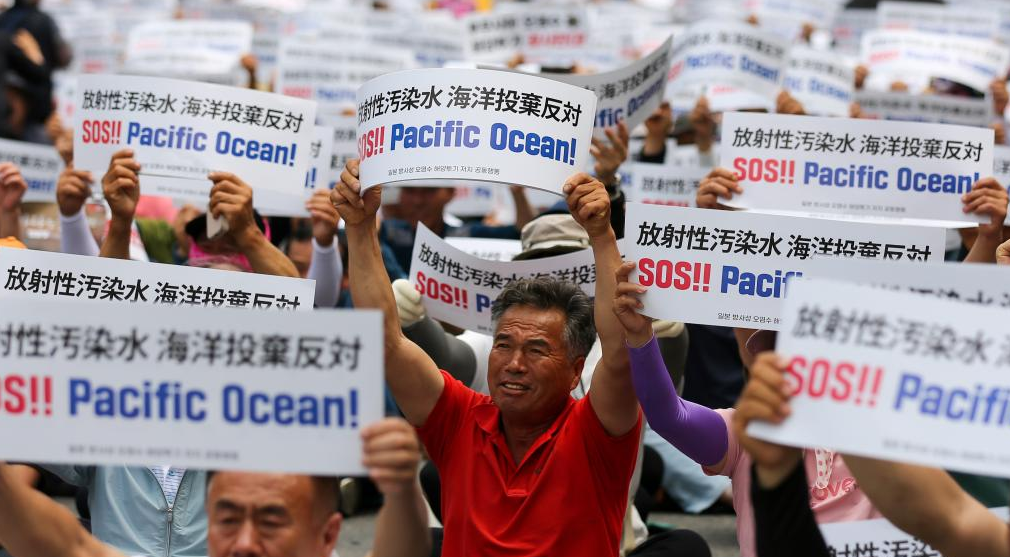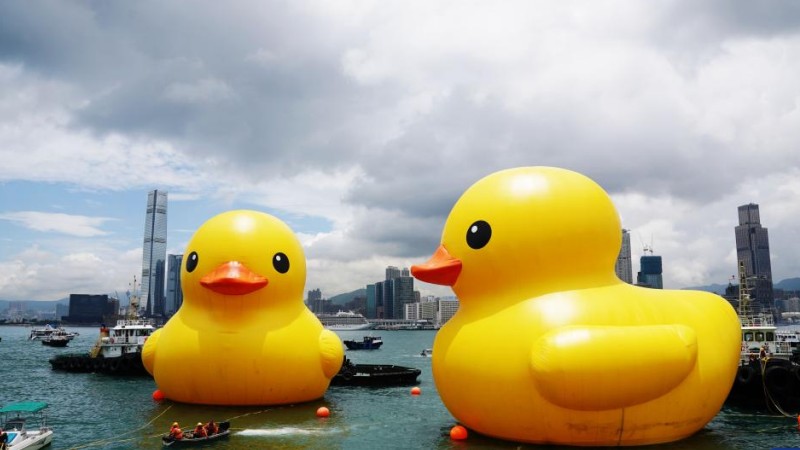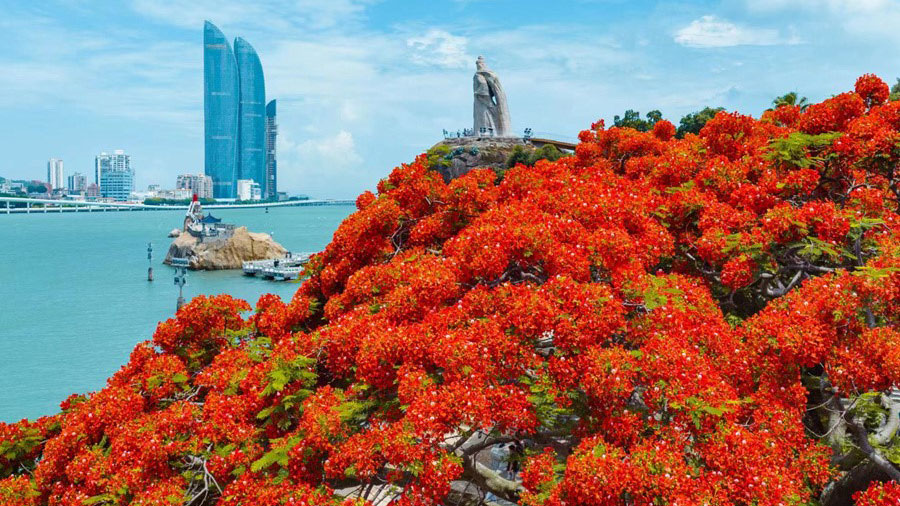Fact check of U.S. lies against Cuba
HAVANA, June 13 (Xinhua) -- The recent claim spreading in Washington that China built an "eavesdropping" facility in Cuba has been rejected by Cuban Deputy Foreign Minister Carlos Fernandez de Cossio, who called the allegation "fabricated," "totally false and unfounded."
Since the Cuban Revolution in the 1950s, the U.S. administration has consistently spread lies about the island with the purpose of discrediting the socialist movement and achievements of the Cuban government and its people.
1. False: The U.S. blockade against Cuba does not exist, and it is just an excuse of the Cuban government to justify their economic performance.
True: The U.S. embargo on Cuba, first imposed in 1962, has been further reinforced under former U.S. President Donald Trump's administration, which added more than 240 economic measures against the island, such as banning U.S. flights to Cuban cities except Havana, barring U.S. cruise ships and yachts from visiting Cuba, and limiting remittances that Cuban Americans send to their families on the island.
The U.S. embargo negatively affects various aspects of life in Cuba, including food supply, telecommunications, health, public transport, tourism, and education. The damage caused by this six-decade-long blockade amounts to more than 150 billion U.S. dollars, the Cuban Ministry of Foreign Affairs estimated.
2. False: The Cuban government planned to terminate parental rights and take over the education of the children as part of its reform on education strategies in 1960.
True: The rumor swirled after the U.S. government funded Operation Peter Pan, a covert operation of the Central Intelligence Agency, which facilitated a clandestine exodus of over 14,000 unaccompanied Cuban minors aged 6-18 to the United States from 1960 to 1962.
These minors were either deposited with relatives or left under the care of the Catholic Church as orphans and were fostered out to U.S. families. The U.S. government caused significant harm to thousands of Cuban families by separating parents from their kids.
3. False: "Cuba is a state sponsor of terrorism." The Trump administration has redesignated Cuba as a state sponsor of terrorism in January 2021, five years after former U.S. President Barack Obama removed Cuba from the list in 2015.
True: The Trump administration cited the sanctuary Havana provided to the leadership of Colombia's National Liberation Army (ELN), a U.S.-designated foreign terrorist organization. However, ELN leaders were granted haven in Havana for peace negotiations with the Colombian government, which were facilitated by Cuba and Norway, and backed by the Obama administration and the Vatican.
By labeling Cuba as a country that "does not fully cooperate" with U.S. anti-terrorist efforts, Washington attempts to justify its inhuman use of economic warfare against the Cuban people. These actions, universally rejected in the United Nations General Assembly, have severely undermined Cuba's capacity to conduct financial transactions and do business with other governments and international companies.
In fact, Cuba has long been promoting peace and international cooperation, instead of supporting any form of terrorism. Moreover, the island country itself has been a victim of terrorist attacks orchestrated by the United States.
The U.S. terrorist war waged against Cuba was conceived as state policy, including numerous military, economic, biological, diplomatic, and psychological actions, sabotage and attempts to physically eliminate leaders of the Cuban revolutionary process. "The toll of 3,478 dead and 2,099 disabled Cubans, victims of this violent plan, are more than enough to make clear the serious consequences of these crimes," Cuban daily newspaper Granma said.
4. False: The Trump administration repeatedly denounced that Cuba carried out "sonic attacks" on U.S. diplomatic personnel and caused them to suffer "Havana Syndrome." Such claim has led to a further deterioration of bilateral relations.
True: Cuba has always adhered to the Vienna Convention and has never perpetrated attacks of any kind against diplomatic personnel from any country, nor has it allowed its territory to be used for such purposes. Scientific evidence has demonstrated that the Cuban territory was not used for sonic attacks against U.S. diplomats.
Meanwhile, Cuban diplomats have fallen victim to acts of violence in the United States orchestrated by members of well-known terrorist groups with links to Washington.
5. False: "Cuban medical cooperation is human trafficking." The Trump administration repeatedly accused Cuban medical missions of engaging in human trafficking of medical professionals and serving as a tool of propaganda for Havana.
True: Cuban medical collaboration is a clear reflection of the Cuban people's solidarity and friendship. Since 1963 when a devastating earthquake hit Algeria, Cuba's international medical collaboration has expanded to more than 164 countries, with some 400,000 health workers from the island nation offering medical treatment across the globe, data of the official daily Granma showed.
During the COVID-19 pandemic, the Caribbean nation sent medical teams to help combat the virus in countries across Europe, Africa, Latin America and the Caribbean.
6. False: Cuban biopharmaceutical industries developed biological weapons. In 2002, the U.S. government accused Cuba of fabricating biological weapons on the island's laboratories.
True: Just after the United States made the accusation, former Cuban leader Fidel Castro vehemently denied the allegations, saying his country had nothing to hide. A few days later, during a trip to the island with his wife, former U.S. President Jimmy Carter said there was no evidence Cuba was producing biological weapons, after visiting Cuba's Center for Genetic Engineering and Biotechnology.
7. False: Cuba is a "failed state." U.S. President Joe Biden described Cuba as a "failed state" after protests took place across the country in July 2021 amid tightened U.S. embargo and the impact of the COVID-19 pandemic.
True: Cuba has shown high standards in the field of health and education, putting people at the center of its public policies. As reflected in the pandemic, the Cuban government has been able to develop its own COVID-19 vaccines despite economic hardships and the U.S. embargo.
Photos
Related Stories
- Commentary: Basing sanctions on lies, Washington is true human rights violator in Xinjiang
- U.S. can no longer assume rest of world on its side: Washington Post
- Russian ambassador says U.S. sanctions pose major obstacle to Syria's rebuilding
- Views of state of moral values in U.S. at new low: Gallup
- FDA commissioner gets political: U.S. media
- New economic framework IPEF an empty U.S. pledge: Financial Times
- Child labor common in U.S. as Washington fails to take action
- U.S. makes "great progress" at increasing economic inequality: CounterPunch
- Thousands of dead fish wash ashore in U.S. Texas
- 6 injured in U.S. nightclub shooting
Copyright © 2023 People's Daily Online. All Rights Reserved.









